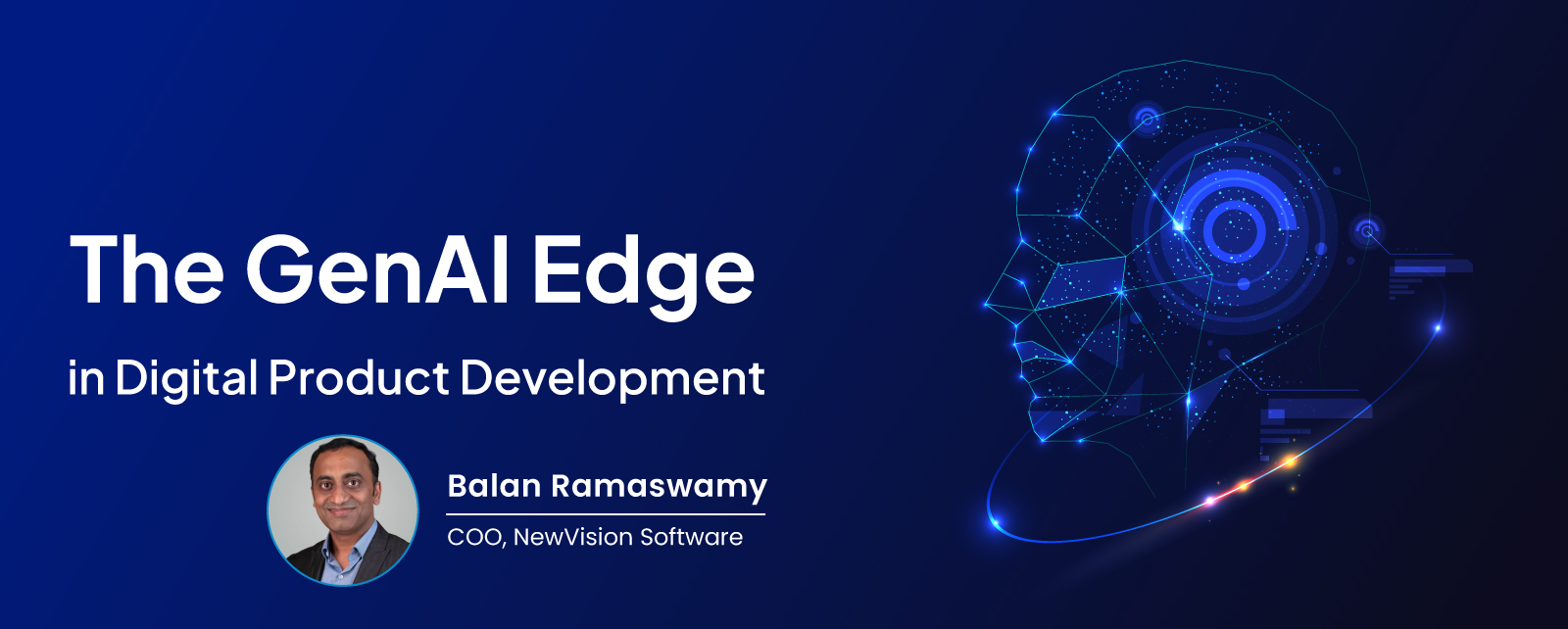
Generative AI (GenAI) is taking the world by storm with new possibilities to drive efficiencies, personalization and improvements in multiple areas including software product design and development.
The ability to summarize and create new content from tons of existing data will have huge ramifications in designing digital products collapsing the time to research, identify new opportunities and in idea generation. Extensive research is necessary in product designing to understand gaps in existing products, market dynamics and technological trends.
At the heart of successful digital product design is a deep understanding of the end user, based on research that delve into user behaviors, preferences, pain points and expectations. Savvy product designers leverage user personas, journey maps and usability studies to craft user-centric designs that elevate the customer experience.
GenAI Empowers Research for Digital Products
The time devoted to digital product research and design can vary significantly based on complexity of the product, industry in which it will operate, development methodology and the organization’s approach to product development.
In agile methodologies, commonly used in software development, the design and research phases are often integrated throughout the development process to allow continuous feedback and iteration as the product evolves. On an average, organizations allocate anywhere from 20% to 40% of the time to research and design activities.
A major challenge during research is going though mounds of information lying in disparate knowledge systems. A Gartner survey finds 47% of digital workers struggle to find information to effectively perform their jobs. Employees struggle to stay afloat as information and applications flood the digital workplace. Today an average desk worker—also referred to as a ‘knowledge worker’—uses 11 applications compared to just six applications in 2019.
The problem becomes accentuated for product managers who need to systematically comb through information in enterprise repositories to join the dots to design an ideal digital product. Often a lot of the product information reside outside of PLM environments in collaborative apps, shared file systems and enterprise systems such as the CRM or ERP.
Navigating between different enterprise systems during research is not just tedious but a serious drain on operational efficiency and time to market. Given that a lot of insights reside in unstructured data, robust search capabilities are crucial. Yet most applications usually support full-text search with limited use of ontologies and semantics, stymieing the ability to discover data that users are not explicitly searching for, but may be relevant to the query.
To understand the enormity of the task, here is a perspective—humans generate approximately 2.5 quintillion bytes of data every day on the internet. This not only makes searching for information tough but also makes inferring tougher.
This is where GenAI can become a disruptive force—GenAI tools can search, synthesize and compose an answer. Based on foundational models with artificial neural network and deep learning capabilities, it has significantly enhanced capabilities to classify data, edit, summarize, query and generate new content based on existing data.
And it is not just the search capabilities. AI models will get smarter based on the synthetic data that GenAI will help create to empower product managers research better by eliminating the need to rely on only real-world data. Gartner predicts by 2024, 60% of data for AI will be synthetic to simulate reality, future scenarios and derisk AI.
Time to Act is Now
GenAI is set to revolutionize software design and development with swift idea generation facilitating product development to strike a balance between efficiency, creativity and research. GenAI is happening now and organizations with sound data strategy will be better equipped with high-quality data to train AI models. Organizations with an early start will be able to ride the technology crest and dominate with empowered digital product development capabilities.


